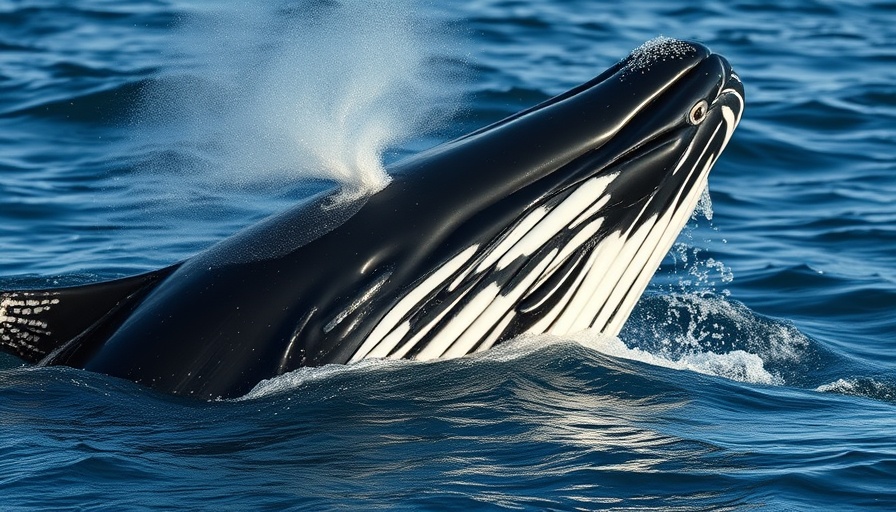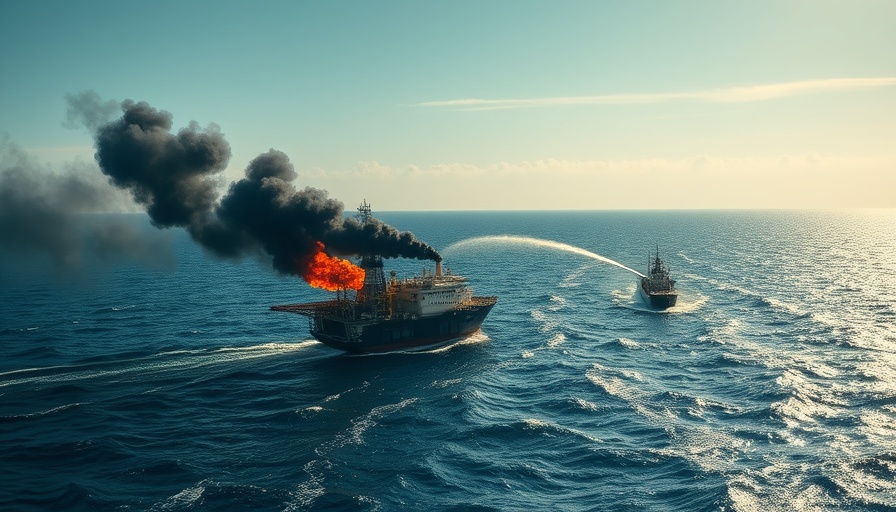
The Struggle for Survival: Rice's Whales in the Gulf of Mexico
The plight of the endangered Rice's whale has garnered increased attention with recent statements from the U.S. government detailing the imminent threats posed by oil and gas operations in the Gulf of Mexico. Known for their elusive nature, these whales face new challenges as industrial activities encroach on their habitat, endangering their very existence.
Unveiling the Dangers: Vessel Strikes and Environmental Impact
The National Oceanic and Atmospheric Administration (NOAA) released a pivotal biological opinion concluding that operations from oil and gas vessels increase the likelihood of vessel strikes on Rice's whales, thereby jeopardizing the species. NOAA estimates that without proactive measures to mitigate these risks, up to nine whales could be killed or injured over the coming decades.
This newly introduced mandate for anti-strike technology reflects a significant shift in the discourse surrounding the balance between energy production and wildlife preservation. Environmental groups are rallying behind this cause, asserting that the federal report must take into account not just the risks from strikes but also the broader environmental implications of oil spills, echoing the devastating aftermath of the Deepwater Horizon catastrophe.
Industry Pushback: Is the Threat Overblown?
Despite the government's findings, the oil industry, notably the American Petroleum Institute, has dismissed these concerns, arguing that the risks to the whales are overstated. They commend the quick resolution of the report, viewing it as a way to prevent halting drilling permits across the Gulf. This juxtaposition of perspectives underscores a growing contention between environmental sustainability and economic interests.
The Significance of Rice's Whales
Exclusively found in the Gulf of Mexico, Rice’s whales, previously known as Gulf of Mexico whales, were officially recognized as a distinct species in 2019. They were once thought to be part of the Bryde's whale family. The occasional sighting has spurred both local fisherman and researchers into action as any interaction poses a unique opportunity to study these rare creatures. The nuanced dynamics of their relationship with local fishing operations reveals a complex interplay of conservation and community.
Future Strategies for Conservation
To protect the Rice’s whale, NOAA emphasizes the need for immediate implementation of protective measures, such as enhanced awareness and monitoring systems for vessel traffic in whale habitats. As technologies evolve, integrating such practices will be essential in promoting the coexistence of marine life and profitable oil operations. Moreover, collaborative strategies involving local fishermen, environmentalists, and the oil industry could pave the way for sustainable practices moving forward.
The Bigger Picture: Marine Life and Economic Policy
This issue not only pertains to the survival of a single species but also highlights broader concerns regarding environmental policy and industry accountability in the U.S. With ongoing debates around climate change and conservation, the survival of the Rice’s whale may hold implications for future marine biodiversity governance. Policymakers must find a balance that supports both the economy and the environment to safeguard the rich ecosystems beneath the waves.
As discussions continue and lawsuits emerge, the fate of the Rice’s whale will likely influence legislation that addresses the environmental costs of oil and gas extraction. Stakeholders from all sides need to engage in constructive dialogue to navigate these complex challenges effectively.
A healthy dialogue about our marine ecosystems not only reflects a commitment to conservation but also shapes policies that impact local fishing communities and the nation's energy policies. With your support for sustainable practices and conservation efforts, you can help ensure that the story of the Rice's whale does not end in tragedy but rather serves as a catalyst for positive change.
 Add Row
Add Row  Add
Add 




 Add Row
Add Row  Add
Add 

Write A Comment